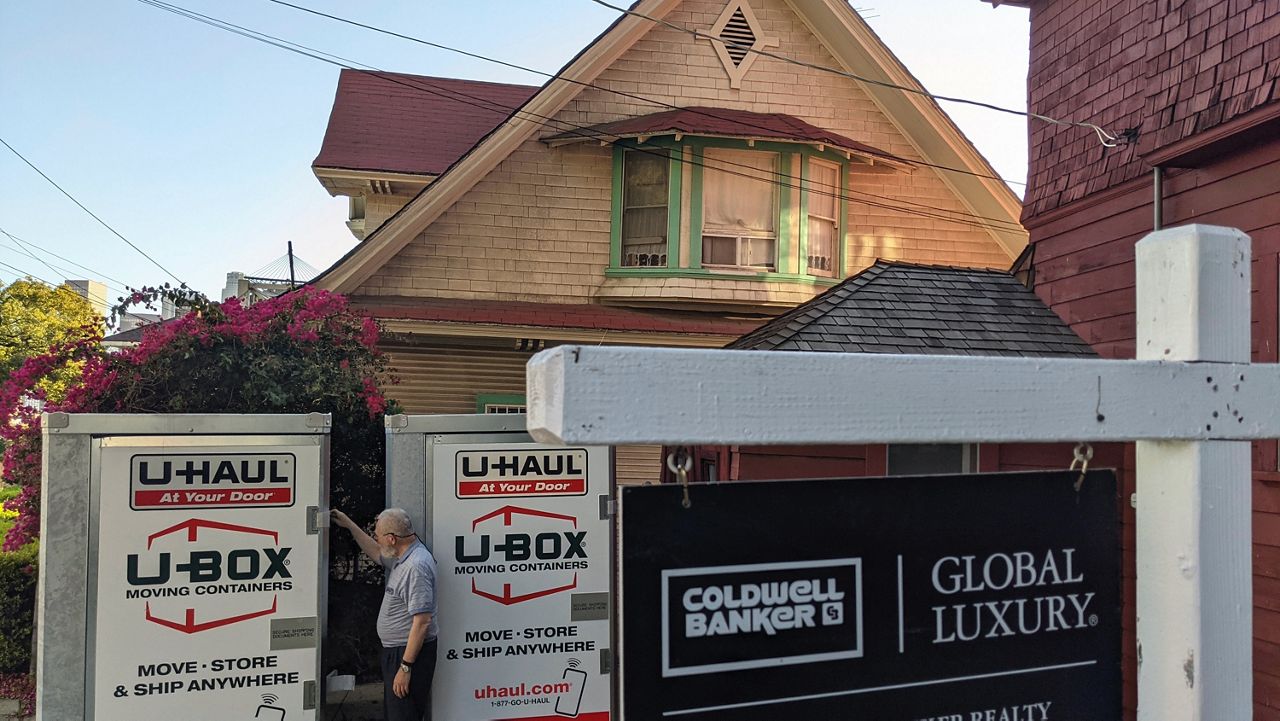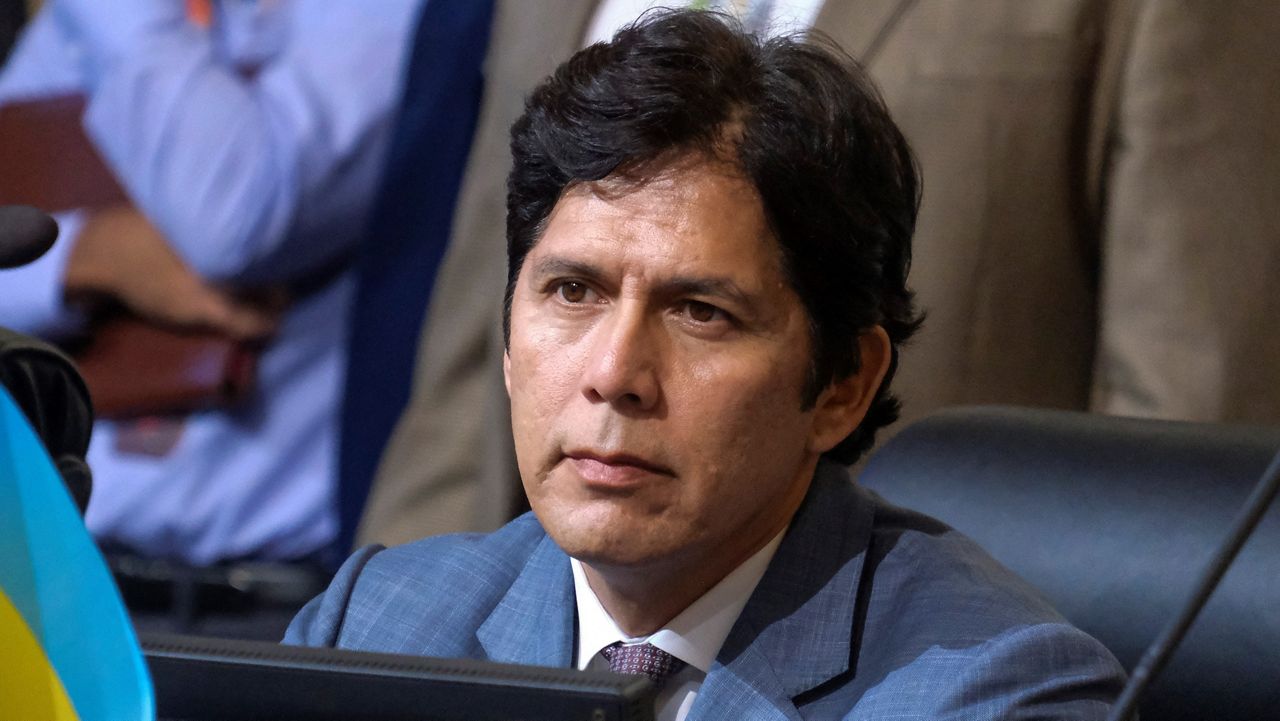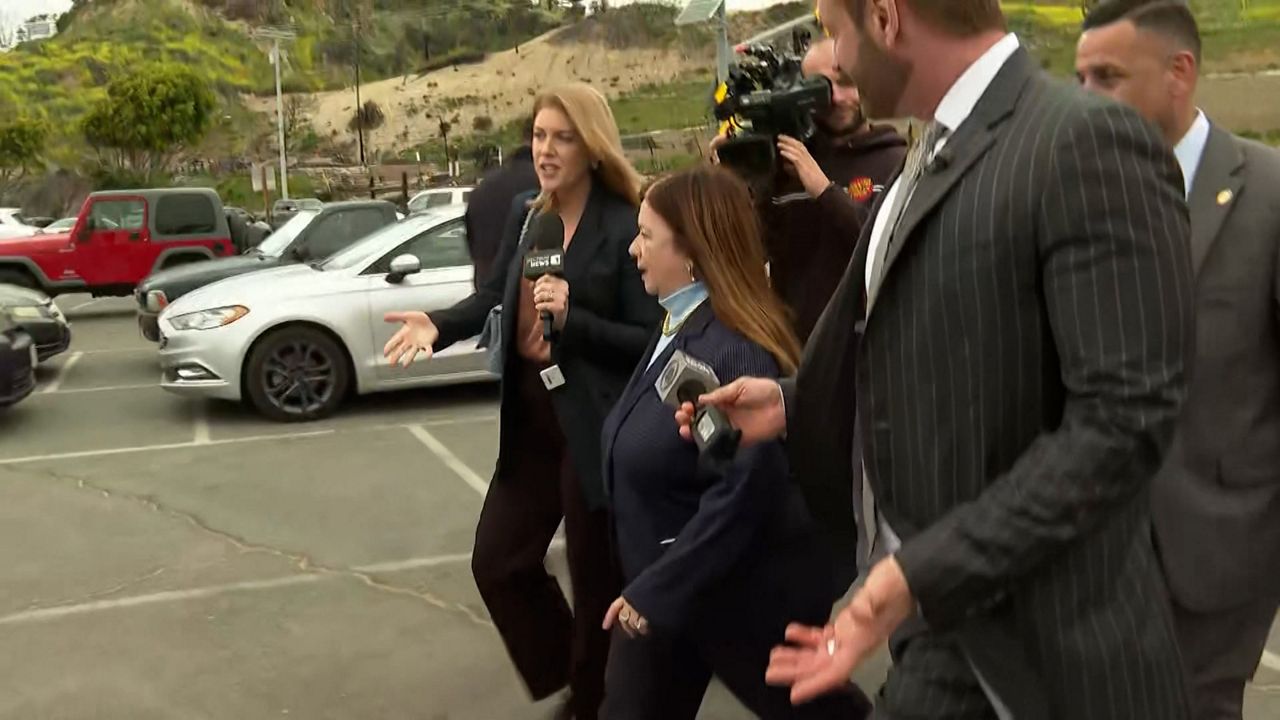If last year's passage and signing of major California housing legislation was a seismic shift to how housing will be built in this state, a handful of "slow growth" advocates are hopeful that their proposed ballot measure might be an aftershock that buries those laws in response.
The measure, sponsored by Redondo Beach Mayor Bill Brand, Yorba Linda Mayor Peggy Huang, and Brentwood City Council member Jovita Mendoza, as well as John Heath, a leader of the United Homeowners Association in View Park-Windsor Hills, would allow cities and counties across the state to effectively brush off state land-use laws like 2020's Senate Bills 8, 9 and 10.
It's a battle that centers on housing policy but in many ways boils down to local control: elected officials seeking to ensure they're the last word on their towns, not real estate interests, and especially not Sacramento lawmakers. City councils from around Southern California and the state have begun rolling off resolutions supporting the initiative itself; AIDS Healthcare Foundation, which has become increasingly involved in housing policy, has even become the initiative's top financial contributor.
"We're just asking, who is going to be the adult in the house? Sacramento is saying we don't need an adult, and if there's going to be one, that it's the state," Huang told Spectrum News. "We're saying, if there should be an adult, it's the local people who know the community, who know the residents."
The proposed measure — which has, until recently, been known as the Brand-Huang-Mendoza Tri-Partisan Land Use Initiative — is relatively straightforward: it's an amendment to the California State Constitution that allows for local laws dictating what can be built on a given piece of land to override conflicting state laws.
In other words, cities would be able to say "no thanks" to newly-enshrined housing laws, like Senate Bill 8 (which extends temporary streamlining of housing project approvals), Senate Bill 9 (which allows easy construction of multiple units and split lots in areas zoned for single-family housing), and Senate Bill 10 (which sets up a streamlined zoning process for multi-unit housing projects near transit areas).
The only areas where state law would prevail are three specific areas of statewide importance: coastal zones, power plant sites, and infrastructure development. The measure would also prevent the state from retaliating against cities by changing, denying, or granting funding based on the adoption of the measure.
The recently-signed housing laws are intended to spur new, neighborhood-appropriate units in areas where one-lot, one-home units have been standard.
According to a University of California, Berkeley study, most cities and counties across the state devote the majority of their land to single-family housing; proponents for the legislation argued that the new housing stock could allow for greater generational wealth among new homeowners and combat rising housing costs and homelessness in California.
But proponents of the initiative claim that the end result of those housing laws will be "gentrification, displacement, traffic gridlock, environmental damage, higher taxes and sprawl." They also argue that housing industry investors, who can afford to set high rents and let properties sit empty, are likely to benefit from the laws and exacerbate the housing crisis. But mostly, they argue that locals should be the ones to set the rules for their towns, and the state should play a supporting role.
"The measure is saying two things: what (Sacramento) is putting forward and claiming the laws are helping is not [helping]…and secondly, it's saying clearly that we need to restore a balance between state and local government in terms of land use plans and policy," said Heath.
The measure's passage is by no means assured at this point: it first must make it onto the ballot; proponents are already holding virtual informational sessions for signature gatherers. Should the initiative meet its requirements to be included on the ballot, proponents are targeting the November 2022 midterm general election. In the meantime, its popularity is growing across the state.
According to Mike Griffiths, a Torrance City council member and representative for California Cities for Local Control, at least 11 cities have passed resolutions supporting the initiative; CCLC plans to continue outreach efforts on behalf of the initiative in the weeks to come, Griffith said.
To this point, the only named major financial supporter for the initiative is the AIDS Healthcare Foundation. AHF, with its "Housing is a Human Right" advocacy arm, has sponsored similar (albeit failed) ballot initiatives in recent years, including Los Angeles's 2017 Measure S — which, among other things, would have imposed a short-term moratorium on developments seeking variances (a term for exceptions to building requirements) — and 2018's statewide ballot Proposition 10, which sought to repeal the state's Costa-Hawkins Act, a law placing limits on local rent control ordinances. It also opposed Senate Bills 9 and 10.
"We opposed SBs 9 and 10 and we opposed them because the authors would not put in any requirements for affordable housing or homeless housing," said Susie Shannon, policy director for Housing is a Human Right. "Supporting SBs 9 and 10 allowed developers to come in and knock down single-family home neighborhoods and put in more market-rate housing. So unless local government can somehow override that, we're going to have even more market-rate housing, which leads to displacement, a lack of affordable housing, gentrification, and more homelessness."
However, while the findings of the initiative reference affordability, the legal language of the proposed amendment itself doesn't include mechanisms or references to bring down housing costs.
"This is initiative is not a rifle shot, it's a shotgun — it's a blunt instrument," Heath acknowledged when asked how the initiative deals with housing affordability. "I think some of that will have to be determined…what I do know is that we can't keep allowing Sacramento to keep doing things willy-nilly with laws that throw off certainty in terms of local planning."










